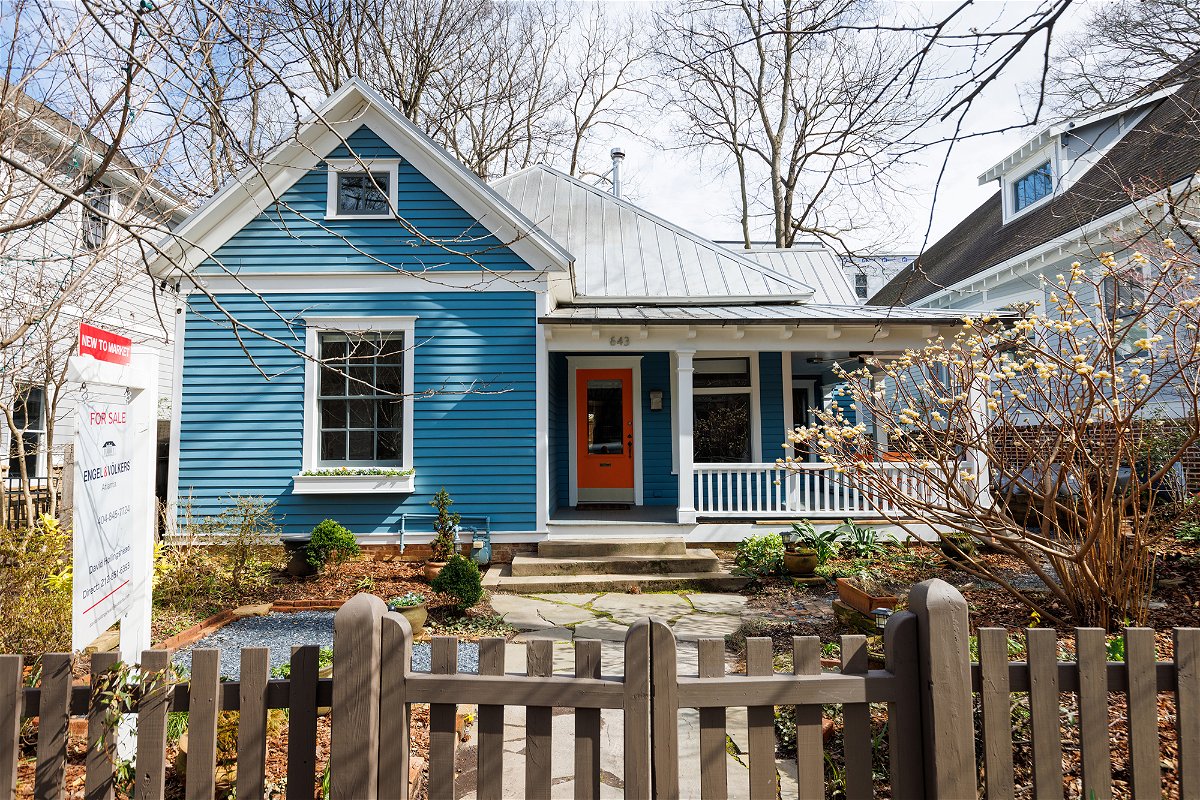Mortgage rates rise for the fifth-straight week

Mortgage rates edged further toward 7%
By Anna Bahney, CNN
Mortgage rates edged further toward 7%, rising for the fifth consecutive week, as the Federal Reserve suggests rate increases will continue amid stubborn inflation.
The 30-year fixed-rate mortgage averaged 6.73% in the week ending March 9, up from 6.65% the week before, according to data from Freddie Mac released Thursday. A year ago, the 30-year fixed-rate was 3.85%.
After hitting a 2022 high of 7.08% in November, rates had been trending down. However, they started climbing again in February, rising half a percentage point over the past month. Robust economic data continues to suggest the Federal Reserve is not done in its battle to cool the US economy and will likely continue hiking its benchmark lending rate.
“Mortgage rates continue their upward trajectory as the Federal Reserve signals a more aggressive stance on monetary policy,” said Sam Khater, Freddie Mac’s chief economist. “Overall, consumers are spending in sectors that are not interest rate-sensitive, such as travel and dining out. However, rate-sensitive sectors, such as housing, continue to be adversely affected. As a result, would-be homebuyers continue to face the compounding challenges of affordability and low inventory.”
The average mortgage rate is based on mortgage applications that Freddie Mac receives from thousands of lenders across the country. The survey includes only borrowers who put 20% down and have excellent credit.
Fed signals it will continue with rate hikes
Coming into 2023, inflation seemed to be cooling. But strong employment numbers and a rising Consumer Price Index revealed inflation remains stubbornly high.
In testimony to Congress on Tuesday, Federal Reserve Chairman Jerome Powell said the central bank will likely raise interest rates higher than previously forecast to fight inflation.
“While last month Fed officials said that a smaller increase in the federal funds rate would help create a soft landing for the economy, Powell’s testimony on Tuesday made it clear that the central bank is prepared to return to a faster pace of rate increases if the incoming February economic indicators remain strong,” said Jiayi Xu, an economist at Realtor.com.
This suggests that investors were not fully prepared and are anxious about the Fed’s upcoming actions, she said.
The Fed’s next rate-setting meeting is scheduled for March 21-22, where a half-point rate hike is now back on the table.
“Uncertainty about how high rates will go and how long they will remain elevated makes it challenging for investors to make well-informed decisions,” Xu said. “Therefore, it’s crucial to keep a close eye on the latest developments from the Federal Reserve.”
The Fed does not set the interest rates that borrowers pay on mortgages directly, but its actions influence them. Mortgage rates tend to track the yield on 10-year US Treasury bonds, which move based on a combination of anticipation about the Fed’s actions, what the Fed actually does and investors’ reactions. When Treasury yields go up, so do mortgage rates; when they go down, mortgage rates tend to follow.
Housing market chilled
Rising mortgage rates have put a damper on the spring selling season.
While applications for a mortgage rose slightly last week after three weeks of declines, according to the Mortgage Bankers Association, activity is muted.
“Even with this jump in activity, both purchase and refinance applications remain well below year-ago levels when rates were much lower,” said Bob Broeksmit, MBA president and CEO. “The recent increase in mortgage rates, right at the start of the busy spring buying season, could cause prospective buyers to delay decisions until rates moderate.”
Home buyer sentiment returned to record lows in February, according to a survey from Fannie Mae. After three consecutive months of improvement, sentiment dropped, returning the index closer to its all-time survey low set last October. The most notable drops in sentiment were in those associated with job security and home-selling conditions.
“While the current housing market may not look promising for sellers due to factors such as an increasing number of unsold homes, longer time on market, and decelerating price growth driven by high mortgage rates, there are still opportunities to be found,” said Xu.
For example, Xu said, recent sales data show that the share of first-time homebuyers is up compared to one year ago.
“As a result, sellers with starter homes may see robust demand and retain some bargaining power,” she said.
In addition, she said, the lasting presence of hybrid working models offer home buyers more flexibility in where they choose to live. Rather than competing for a home in denser, more central areas, some buyers will move further away from work if they aren’t commuting every day.
“This trend could make homes with easy access to public transportation systems more attractive to home buyers which, in turn, enhances bargaining power for the sellers,” Xu said.
For sellers who are also buyers, she said, “it is important to note that they can still leverage their record-high equity, even if they have to adjust their expectations to lower asking prices.”
The-CNN-Wire
™ & © 2023 Cable News Network, Inc., a Warner Bros. Discovery Company. All rights reserved.